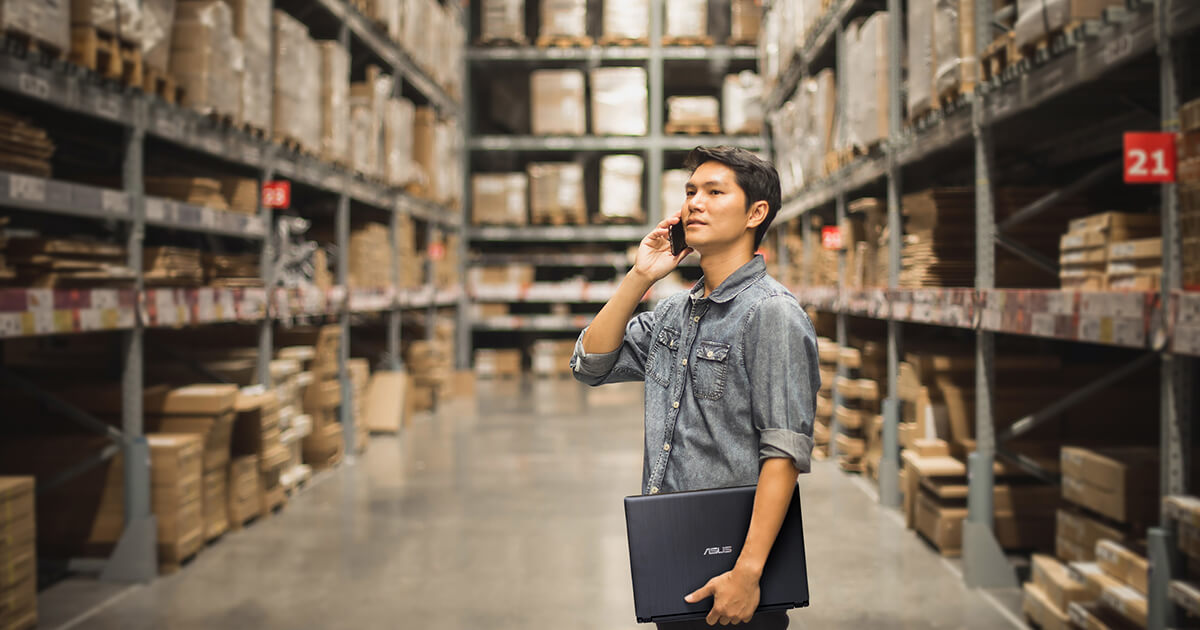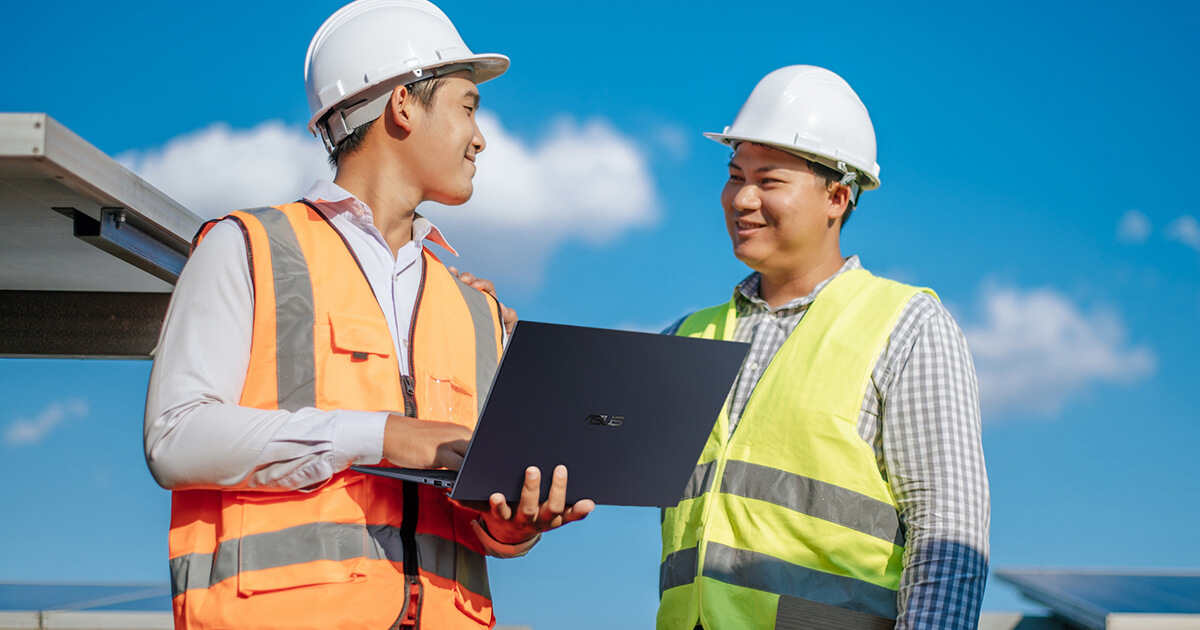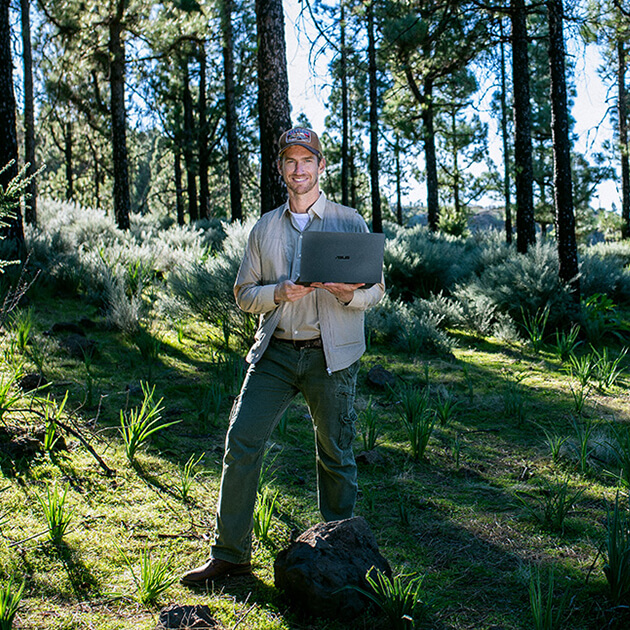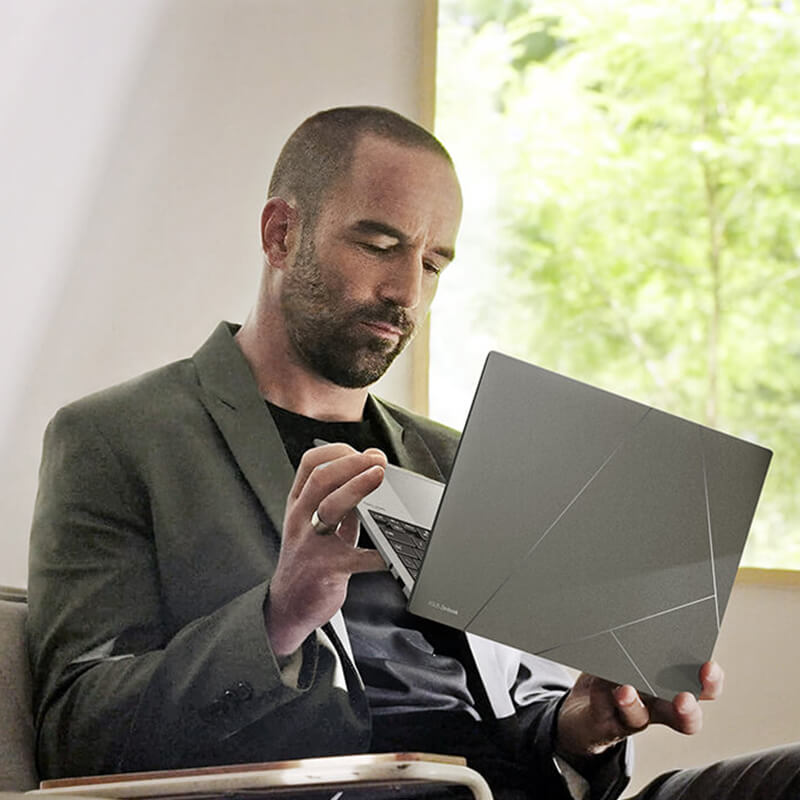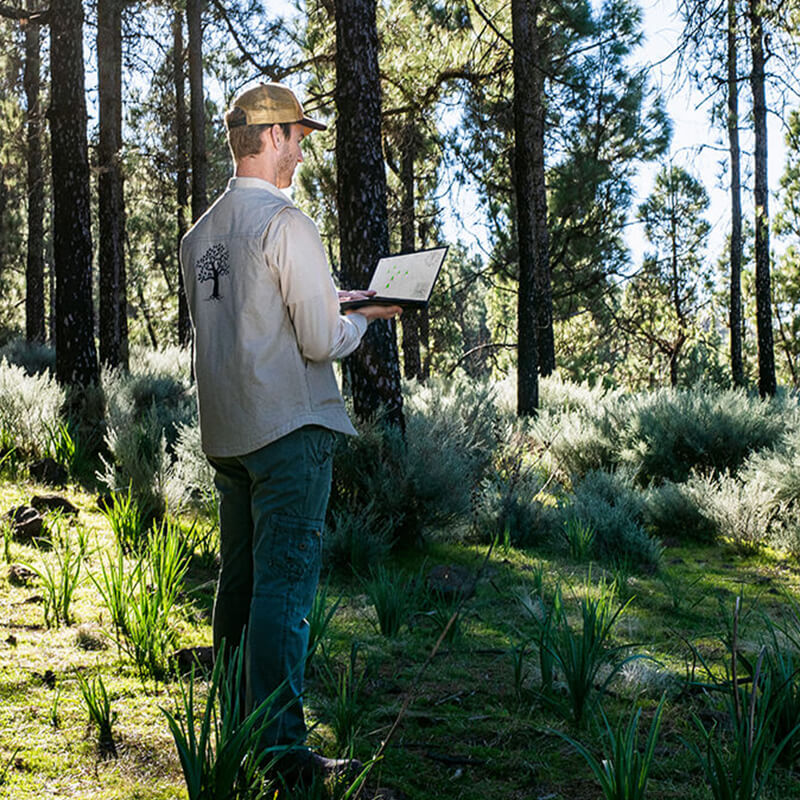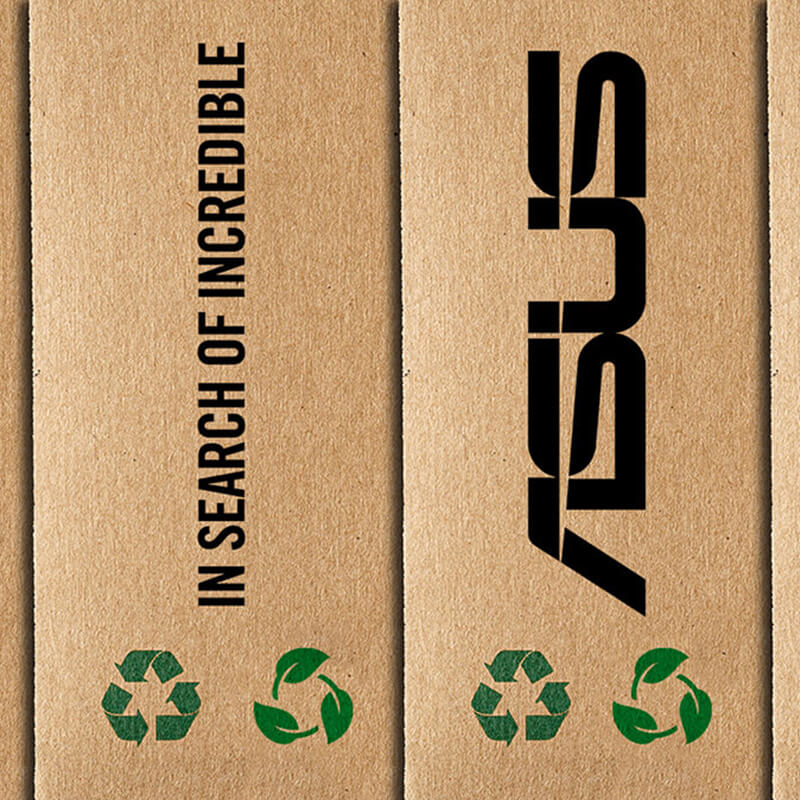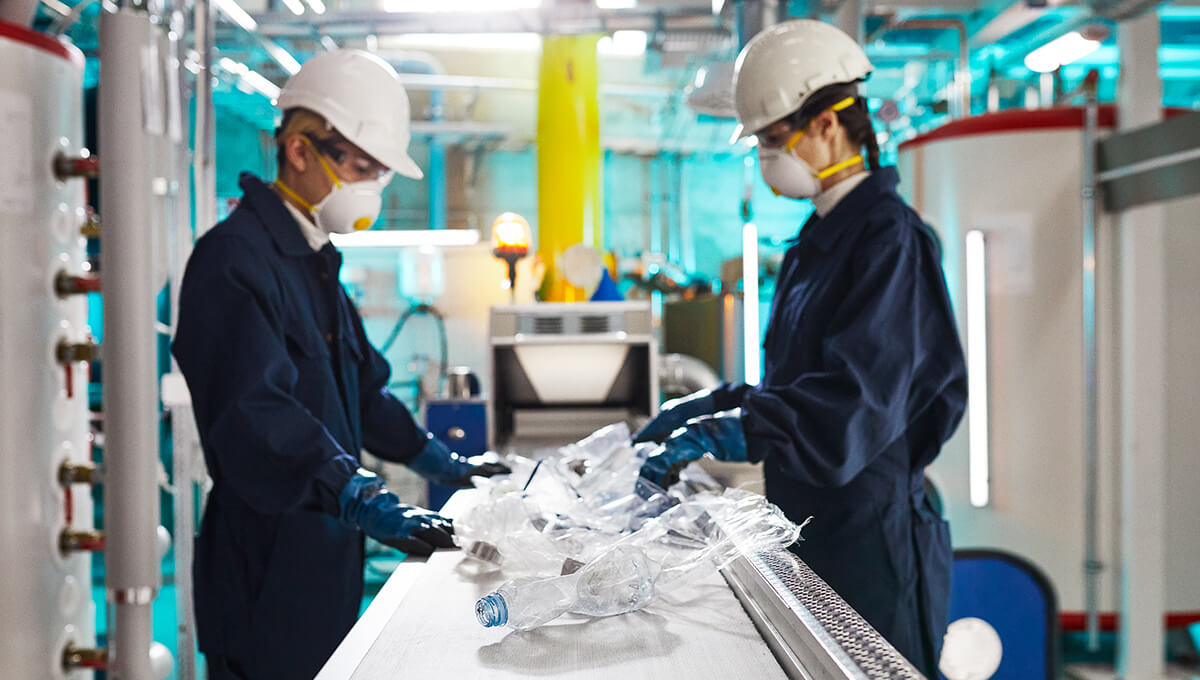
Jan 29, 2024
What does supply chain management have to do with corporate
sustainability? A sustainable supply chain is crucial for reduction
of operational risk in any business. Human rights, labor safety,
obtaining responsible materials, carbon reduction, and efficient
manufacturing processes are essential factors in creating a
responsible, green supply chain.
As a multinational company and leader in the computer and
electronics industry, ASUS has over 700 suppliers worldwide. Read on
to find out how we manage sustainable, responsible supply networks
in cooperation with partners.
Frameworks For Validating Sustainable Partners
ASUS takes social responsibility and corporate governance very
seriously. In 2018, we became a full member of
Responsible Business Alliance (RBA), a group dedicated to supporting the rights and safe working
conditions of workers in supply chains. ASUS is dedicated to
fulfilling obligations as a Full Member, which requires us to
fulfill stricter requirements compared to Regular, Affiliate, and
Supporter members in RBA. Hence, we strictly audit relevant partners
traced deep into the supply chain. These partners’ functions include
product assembling, component manufacturing, and raw material
mining. To align with our sustainability goals and reassure our
customers that they are purchasing from a responsible corporation,
ASUS has training programs, screening and audits, partner
performance incentives, and code of conducts to be abided by – all
of which help validate supplier and partner quality.
Carbon Reduction Along the Supply Chain
ASUS is committed to encouraging and supporting our partners to
reduce carbon footprint and minimalize carbon emission along the
supply chain as a result. This is crucial because our supply network
is the primary contributor to ASUS’s carbon emission. To reduce
carbon footprint, we have a five-year plan for carbon reduction
targeted at our key suppliers that has been in execution progress
ever since 2021 and is expected to continue until 2025, from then we
will reflect and set further plans to achieve the next milestone.
This plan consists of three stages – identifying sections in
suppliers’ production that generates most carbon emission, mapping
out carbon reduction plans based on the supplier’s capacity, and
finally, the execution of the drafted plan.
The expected results of this carbon reduction plan include
encouraging partners to acquire the International Standard for GHG
Emissions Inventories and Verification (ISO 14064), which promises
the integrity and accuracy of calculated and published carbon
footprint data. ASUS also aspires to improve suppliers’ equipment
efficiency and increase renewable energy usage. These efforts are
validated by
Science Based Targets initiative (SBTi)
to reduce carbon emissions and pursue the goal of ASUS 2050 Net Zero
vision.
Partner Screening and Auditing
ASUS has a three-step framework for choosing partners and making
sure they meet sustainability requirements. The three steps are 1)
New Supplier Approval; 2) Continuous Risk Management; 3) Performance
Evaluation. Each supplier must pass a New Supplier Approval process
to work with ASUS. This screening process involves ensuring that the
supplier meets ISO 9001 and ISO 14001 standards. These are globally
recognized standards for quality management and for environmental
management systems. Suppliers will then need to go through an
initial audit, which includes inspections for quality, zero
hazardous substances, and corporate social responsibility. Finally,
suppliers must sign the
ASUS Code of Conduct Declaration
which provides extra protection to young and female employees, and a
Human Rights Statement
for promising commitment to integrity and human rights.
ASUS supervises approved partners through annual continuous risk
management and quarterly performance evaluations. Partners are
categorized according to risk level and are accordingly subject to
on-site or document review covering labor supply, environmental and
social impacts, and governance. Suppliers must also complete an
annual survey to report responsible mineral sourcing, greenhouse gas
emission, water footprint, and waste. The final step of performance
evaluation is conducted quarterly and determines whether ASUS should
continue partnership with the supplier based on quality, cost,
technique, punctuality, service, ethics, environmental protection,
and sustainability. Suppliers who exceed expectations and outperform
are rewarded with more resources from ASUS as encouragement.
Training Programs and Conferences
It’s important to raise awareness and keep suppliers aligned on
human rights regulations, carbon management trends, and
sustainability goals. ASUS organizes regular training programs and
conferences for suppliers to keep them up to date on related topics.
Presenters such as qualified auditors from impartial third-party
institutions are invited to give lectures on how to make
improvements, ensuring human rights, carbon reduction and more.
Along with these in-person training sessions, ASUS also offers
online courses to familiarize suppliers with the RBA Code of Conduct
and encourage them to achieve ISO certifications.
In 2022 more than 90% of ASUS suppliers expressed that ASUS-provided
trainings and conferences provided good opportunities for
communication on sustainability topics. ASUS also tries to encourage
conversations in real time with partners via large scale supplier
summits. We held a physical event in Taiwan in December 2023 for
suppliers of which we are extremely proud to report - achieved a
100% attendance rate from key suppliers. The latest hazardous
substance restrictions and sustainability regulations across
countries such as Eco-design for Sustainable Products Regulation
(ESPR) were shared in the event. Such endeavors of management and
active communication are made because we see suppliers as our key
partners and hope to create a sustainable supply chain hand in hand.
Responsibly Sourced Minerals
Minerals and metals such as tantalum, tin, tungsten, gold, and
cobalt are essential in ASUS products, including batteries,
motherboards, CPUs, hard drives, and more. ASUS smelter suppliers
are located around the world, with 65% of them located in Asia. ASUS
is in close collaboration with Responsible Minerals Initiative (RMI)
as a verified member, an organization widely used by corporations to
verify responsible mineral sourcing. RMI maintains a list of the
latest qualified smelter certifications and provides suppliers with
procurement resources. ASUS currently sources 100% of our tantalum,
tin, tungsten, and gold from conformant smelters and will continue
this commitment in the future.
To address issues of illegal child labor, low wages, local social
instability caused by illegal mining, and human right concerns, ASUS
follows the five principles of OECD Due Diligence Guidance for
Responsible Supply Chains to investigate suppliers with potential
risk and conflict. The five principles include establishing strong
company management systems, identifying and assessing risks in the
supply chain, designing and implementing responses to identified
risks, carrying out independent third-party audits for due
diligence, and finally to report annually on supply chain due
diligence results.
To fully abide by these five principles in OECD Due Diligence, ASUS
requires that all partners comply with
ASUS Responsible Minerals Policy
and the Responsible Business Alliance (RBA) Code of Conduct. The due
diligence process then involves conducting responsible mineral
surveys and a Reasonable Country of Origin Inquiry (RCOI) to check
if minerals are sourced from the Democratic Republic of Congo. Then
suppliers need to go through the Responsible Minerals Assurance
Process (RMAP) which is a filtering procedure conducted to choose
smelters. After smelters pass examinations, ASUS requirements are
then communicated with qualified smelters and optimization plans are
set. Conversion of conformant suppliers are tracked quarterly.
Finally, ASUS discloses the list of suppliers involved in our supply
chain on our
ESG website
and in our public annual
sustainability report.
Accomplishments
In 2020, we obtained the world’s first ISO 20400 certification for
sustainable procurement with outstanding performance. This
significant milestone verified by SGS, a globally trusted
third-party, speaks for ASUS’s dedication to implementing and
executing proper procurement policies. We also completed annual
Environmental, Social, and Governance (ESG) audits for all high-risk
suppliers during that year. After corrective actions were taken to
correct deficiencies discovered, the estimated savings - measured by
saved medical cost of reduced overtime hours and environmental
impact - amounted to over US$750,000. These quantifications not only
help us measure progress made regarding supply chain sustainability,
but they also provide solid indications to prioritize investment for
supply chain maintenance.
In 2022, ASUS conducted more than 1,500 interviews among suppliers
and their employees and provided labor rights protection more than
410,000 person times. ASUS has also achieved an average annual
increase of 20% for conducted interviews since 2016.
Our efforts to supervise and support suppliers in reducing carbon
emission have been productive. Based on our latest data in 2022,
ASUS’s key suppliers have successfully reduced their carbon
emissions by approximately 24% compared to the baseline year 2020.
ASUS has become a leading example of supply chain sustainability
management. Our core values for respecting human rights remain
unwavering. We can confidently claim to have achieved human rights
and labor integrity in the process of our product manufacturing
throughout our supply network. As a full member of RBA that will
continue to follow RBA code of conduct and complete 100% of
third-party audits, we currently are and will continue to ensure
suppliers and partners work with us in tandem to build a green,
sustainable supply chain.
Discover ASUS Eco-Friendly Laptops







